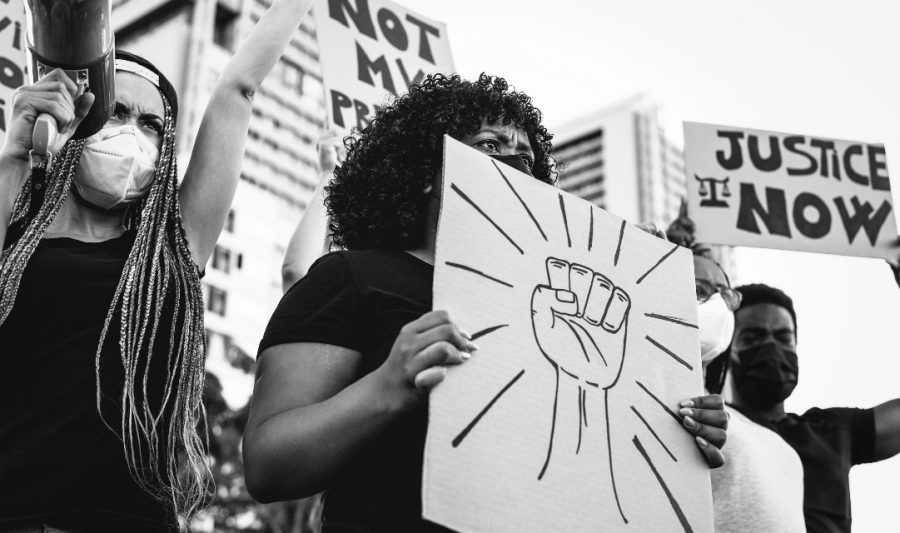No More Talking. What Are We Going to Do?
In June, as a nation took to the streets to protest the anti-Black violence and systemic racism behind the killing of George Floyd and other Black Americans, St. John’s Law students, faculty, and staff came together for a virtual Dialogue Day as part of our community-wide commitment to actively combat racism.
After the program, Dean Michael A. Simons shared this message:
Last night, in the wake of the senseless killing of George Floyd, St. John’s Law students, faculty, and staff gathered online for a virtual Dialogue Day program about law, justice, and racism:
No More Talking. What Are We Going to Do?
That was the question and the call to action put forward by our student-run Coalition for Social Justice (CSJ), our Black Law Student Association (BLSA), our Ronald H. Brown Center for Civil Rights, and many co-sponsoring student organizations. And last night’s community response was one of the most inspiring and moving things I have participated in my 22 years at St. John’s Law. We came together to support each other, to make the Law School better, and to commit to actively combat racism—in ways that were both simple and profound.
None of it would have happened without our students, in particular last night’s lead presenters and facilitators, Jasmine Johnson ’21 and Pharoah Sutton-Jackson ’21, representing the leadership of BLSA and the CSJ. Last week, BLSA reached out to the Law School administration and other student leaders, inviting us to stand with the black law student community at St. John’s Law and in support of the pursuit of social justice.
The Law School’s Ronald Brown Center then worked with BLSA and the CSJ to help plan a Dialogue Day event. Everything was driven by the students. When I sent a message to the St. John’s Law community a few days later invoking the Vincentian Question—What must be done?—I was taking my lead from the students, who had already decided that last night’s event would focus on action, not dialogue.
In the days leading up to the event, in response to the call from BLSA and the CSJ, our various student organizations met separately, conferred with their e-boards, and developed specific action steps that they could take to advance racial justice and help make St. John’s Law an anti-racist institution. Last night, we saw the fruits of that effort. Almost 300 students, faculty, and staff gathered for almost three hours. After reflections from a dozen faculty members, a parade of student leaders from 23 different student groups presented their organizations’ ideas and commitments—events, petitions, fundraisers, committees, speakers, outreach, research, and so much more. When I asked on Monday What must be done?, I had no idea that by Thursday we would have so many different answers.
Beyond the concrete action plans that will result, last night also said something important about the St. John’s Law community. Our students’ care for each other was evident as speaker after speaker committed to “stand with” their black classmates. I was struck by the irony of that phrase, because most of us were sitting and we were not actually “with” each other. But our physical distance made the metaphor even more powerful, and somehow the Zoom event felt even more intimate than an in-person event.
This was all done by our students. Yes, the Law School gave them the platform, helped facilitate the planning, and, importantly, trained them to be thoughtful leaders who care about justice. But last night was their doing. They empowered and inspired their classmates; and the student body responded with compassion, energy, and wisdom. For me, it was humbling. It also made me enormously proud. And it made me realize how blessed we are to have students willing to bear the burden of this work when many of them are acutely suffering.
I don’t mean to suggest that one feel-good event has solved our problems. Far from it. And the pain and trauma felt by our black students and colleagues is certainly not erased. But what was most inspiring about last night is that it is just a beginning. The action plan that will result, and the collaboration that will follow, will require hard work. But we’ve begun that work. And, right now, that is uplifting.

